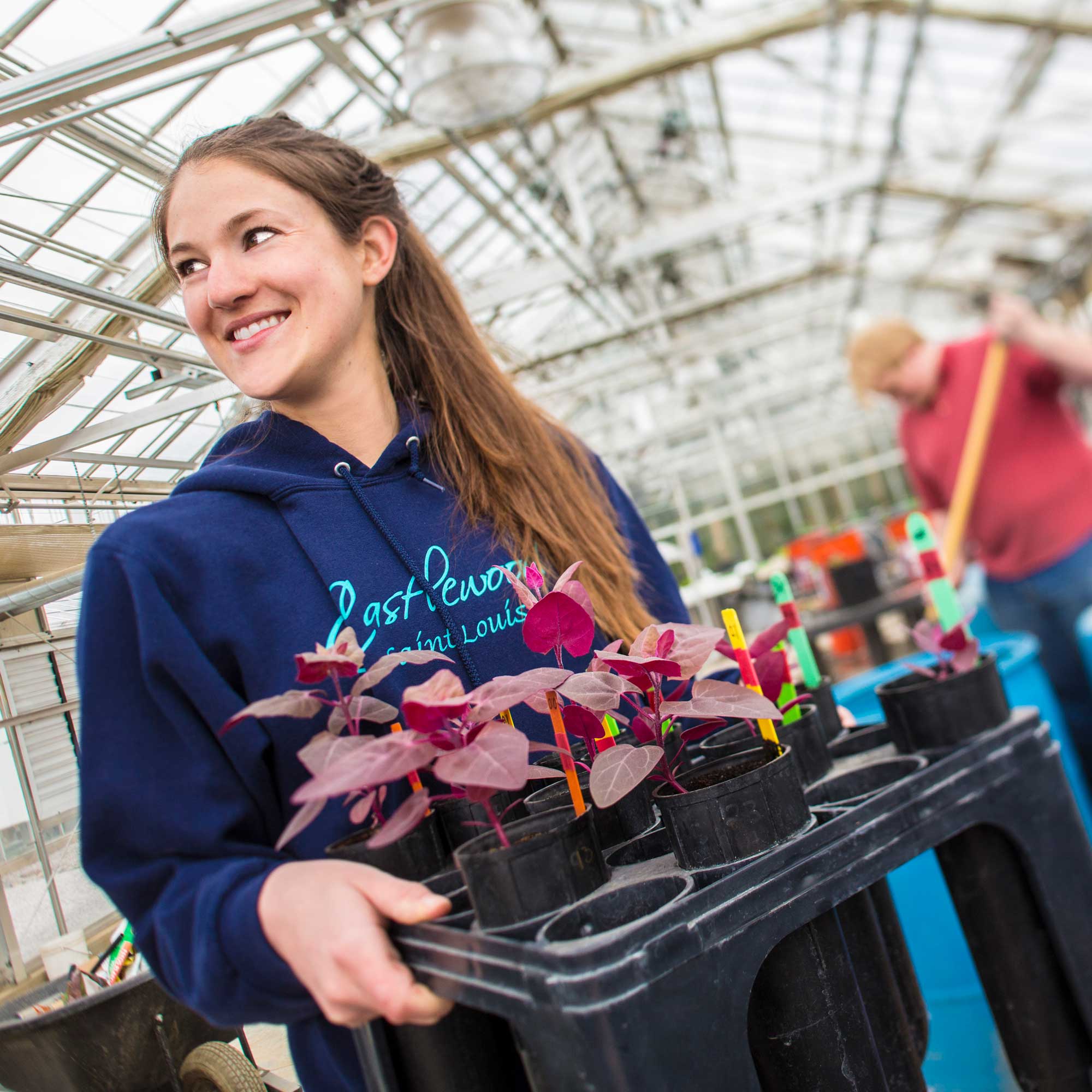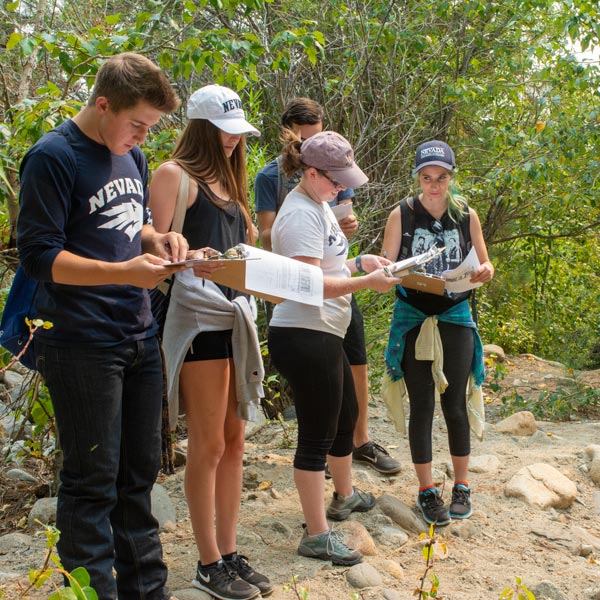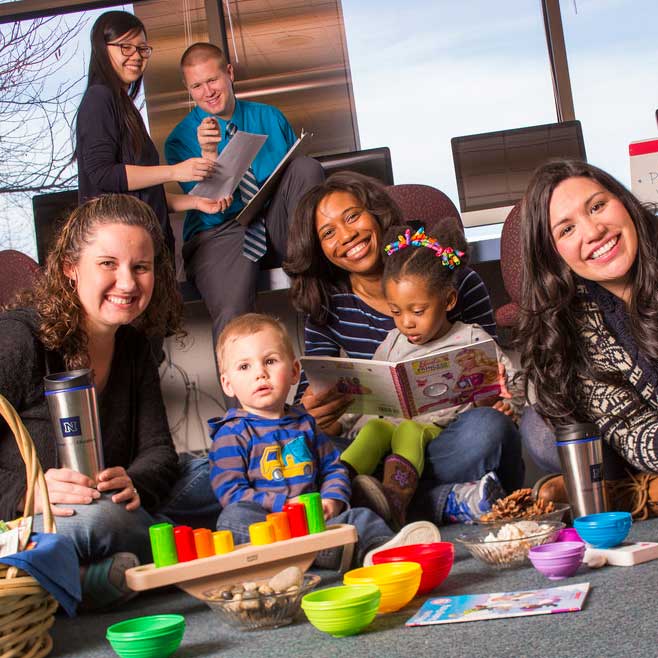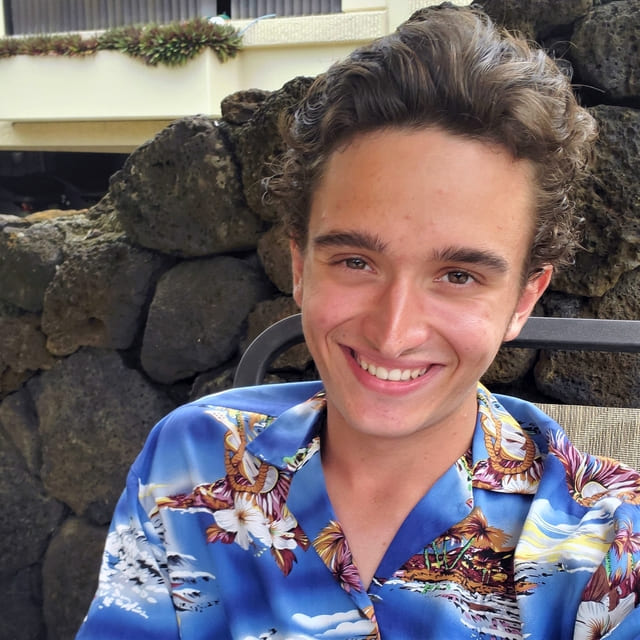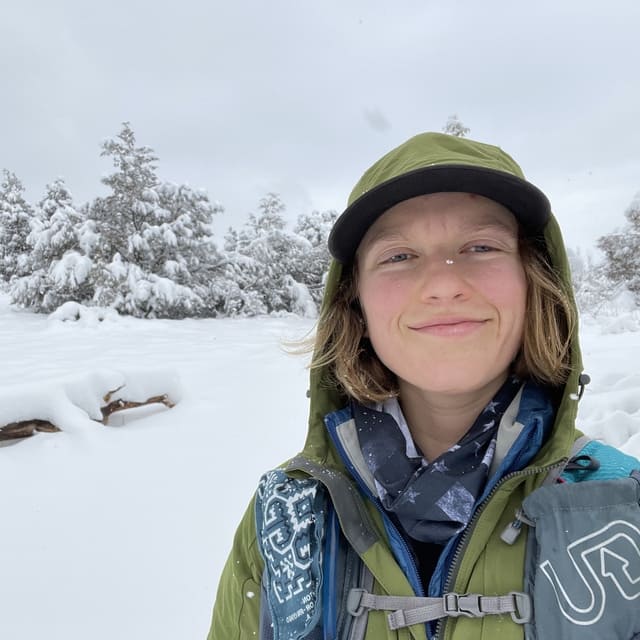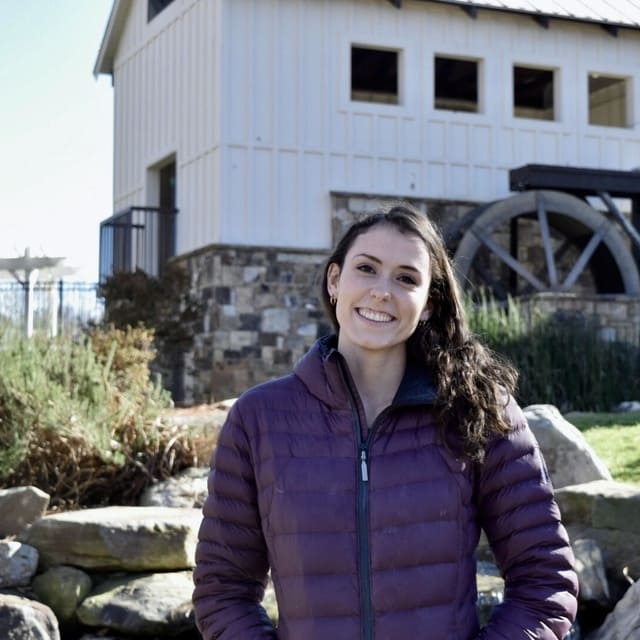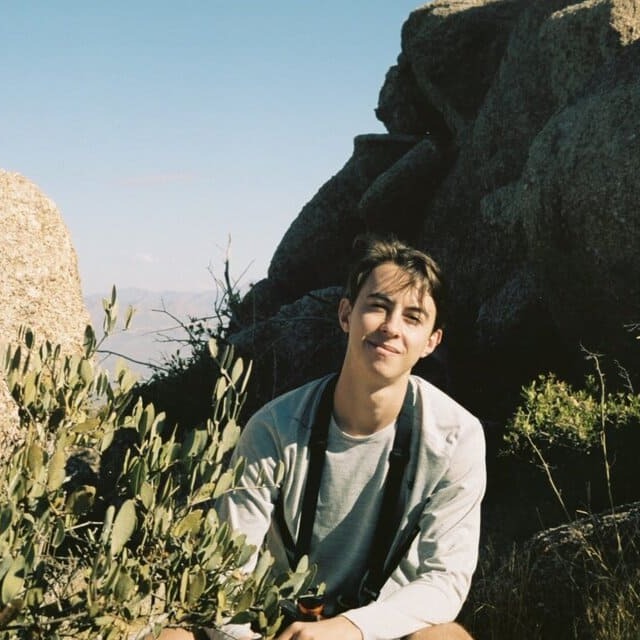About our College
A founding college of the University, we have a long tradition of excellence in teaching, research and engagement programs that benefit the health and economic vitality of Nevada. We offer programs in:
- agriculture, horticulture, rangeland and veterinary sciences
- biochemistry and molecular biology
- children, youth and families
- community and economic development
- health and nutrition
- natural resources and environmental science
New assistant dean of administration provides support for leadership
Katie Jameson joins the College
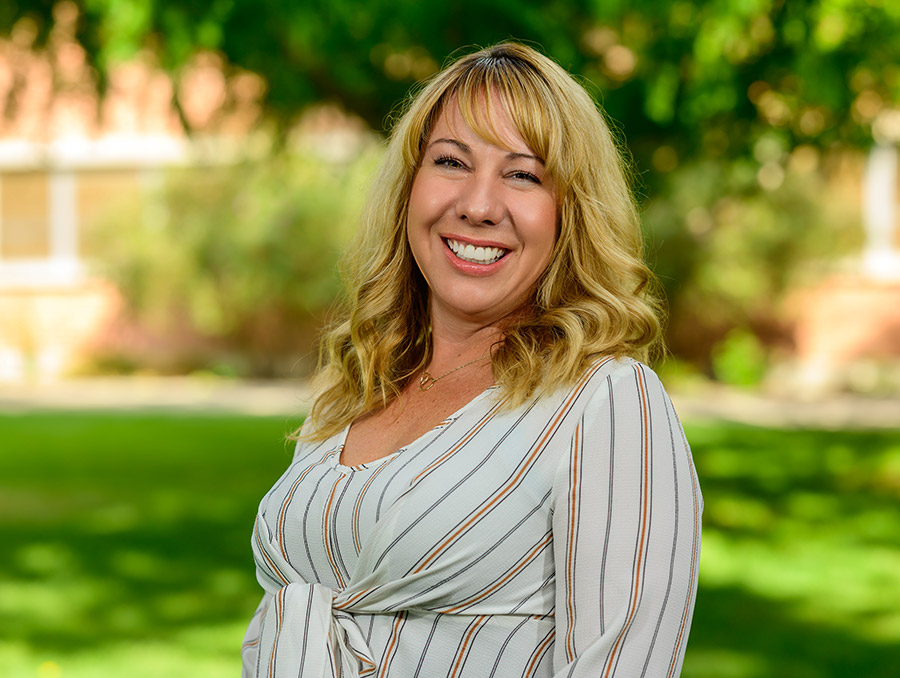
Assistant Dean of Administration Katie Jameson will provide key support to the College and its units.
The College has welcomed Katie Jameson as the new assistant dean of administration. Jameson will be responsible for providing administrative, analytical and strategic support to the dean, associate deans and directors.
She will oversee finance, budget, staffing and strategic planning for the College’s four academic departments and its Extension, Experiment Station and Extended Studies units. While her role encompasses many key functions of administration, she hopes to also spend time on strategic planning, streamlining processes, exploring funding opportunities such as grants, and increasing other revenue sources for the College.
Jameson attended the University and graduated with a Bachelor of General Studies, with an emphasis in accounting and business management. She also completed the State of Nevada Certified Public Manager Program. She brings over 20 years of experience in working with government services and fiscal oversite and policy.
Making the most of resources to serve the state
“We were extremely fortunate to find Katie. Our College has many complexities to juggle administratively. Katie’s a perfect fit for making the most of our resources to benefit our students and others we serve throughout the state.” -Dean Bill Payne
Meadow restoration efforts yield long-term climate change mitigation benefits
New study shows restored meadows capture and store large amounts of carbon
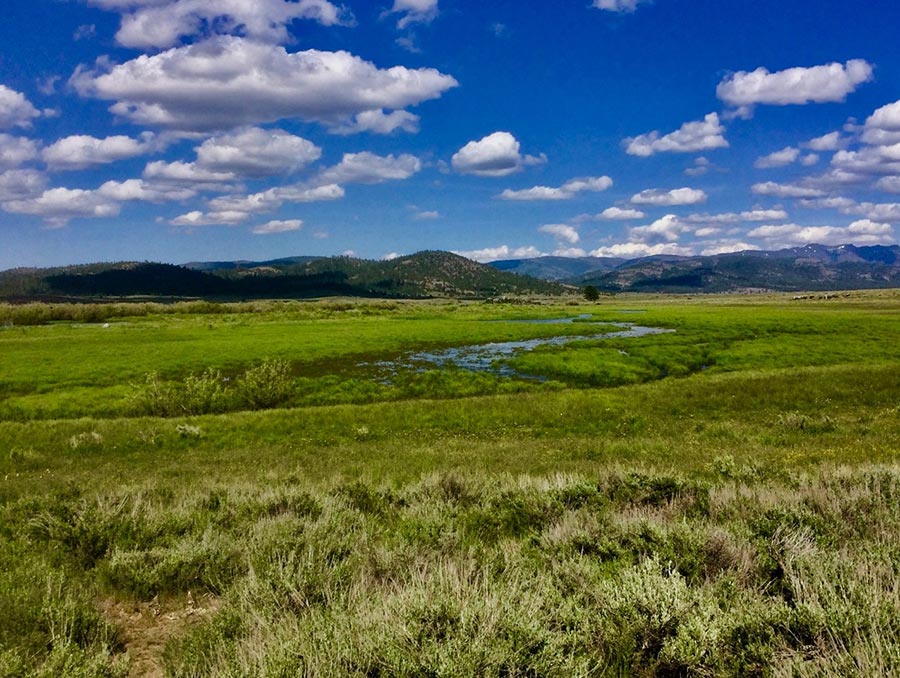
Red Clover Valley in eastern Plumas County, California, is a restored meadow that was studied by the researchers. Photo by C.C. Reed.
Restoration efforts in montane meadows designed to increase late-season water flows, improve water quality, diminish flood events and provide valuable habitat have been ongoing for decades in the Sierra Nevada. It has been known that, generally, healthy meadows soak up and hold carbon in the soil, becoming natural “sinks” for carbon, and decreasing harmful atmospheric carbon dioxide. However, how much carbon restored meadows can sequester and for how long they can consistently do so has been unclear, until now.
A new study, by College Postdoctoral Scholar Cody Reed with Associate Professor Ben Sullivan, has demonstrated that restored Sierra Nevada meadows continue to successfully sequester carbon for more than 20 years, and at rates that exceed international climate change mitigation goals by up to 10 times.
Soil carbon sequestration is an important component of global carbon capture and storage strategies designed to counter rising global emissions. And, while meadows in the Sierra Nevada range cover less than 2% of the land surface area, past research shows they may contain 12%–31% of total soil carbon stocks. Restoration efforts that replenish lost soil carbon can help combat climate change while improving ecosystem function.
Playing a lasting role against climate change
“Our research shows meadow restoration can play a lasting role in carbon and nitrogen storage. Meadow restoration improves ecosystem functions. The benefits start quickly and appear to continue for decades.” -Associate Professor Ben Sullivan
New SNAP dashboard strengthens food-security education across Nevada
Planners, program managers can easily tap into data about nutrition, physical activity

The first-of-its-kind dashboard is expected to bring healthier, more active lives for SNAP participants. Extension staff led the ambitious undertaking, with expertise from across the University.
A powerful new online dashboard developed at the University, provides a fresh – and sometimes startling – way to visualize the challenges of food security, nutrition and physical activity across Nevada. It’s believed to be the first of its type in the nation, and it’s likely to play an important role in development of new, evidence-based strategies to bring healthier, more active lives for participants in the federal Supplemental Nutrition Assistance Program – better known by its acronym, “SNAP.”
Extension SNAP Education Coordinator Macy Helm led the dashboard project. Her dashboard project team included Extension Evaluation Specialist Najat Elgeberi; Extension SNAP-Ed Evaluation Coordinator Brian Luckey; and Nick Etchegaray and Cody Grigg, both with the University’s Office of Planning, Budget & Analysis.
Their finished product provides a wealth of information: Are youngsters in rural eastern Nevada more physically active than their peers in Clark County? (No.) How much food goes to waste every year in Lyon County? (At least 278 tons.) How many seniors in Nevada eat at least one serving of vegetables every day? (82%.) But beyond providing fact-based fodder for discussions about nutrition and exercise, the dashboard is designed to make life easier for researchers and managers of programs that provide SNAP education.
Serving the needs of Nevada communities
“I am proud that we have created a tool to further enhance the University’s land-grant mission. Getting these data into the hands of Nevada business and community leaders and its citizens furthers their ability to truly understand and react to the needs of those in their communities.” -Manager Cody Grigg
College distributing nearly $190,000 in scholarships this fall
Funds empower students to achieve academic and professional goals
By the numbers
![]()
120+
STUDENTS
![]()
44
SCHOLARSHIP FUNDS
![]()
$189,830
AWARDED
![]()
$7,900
LARGEST AWARD
Our students' scholarships in the news
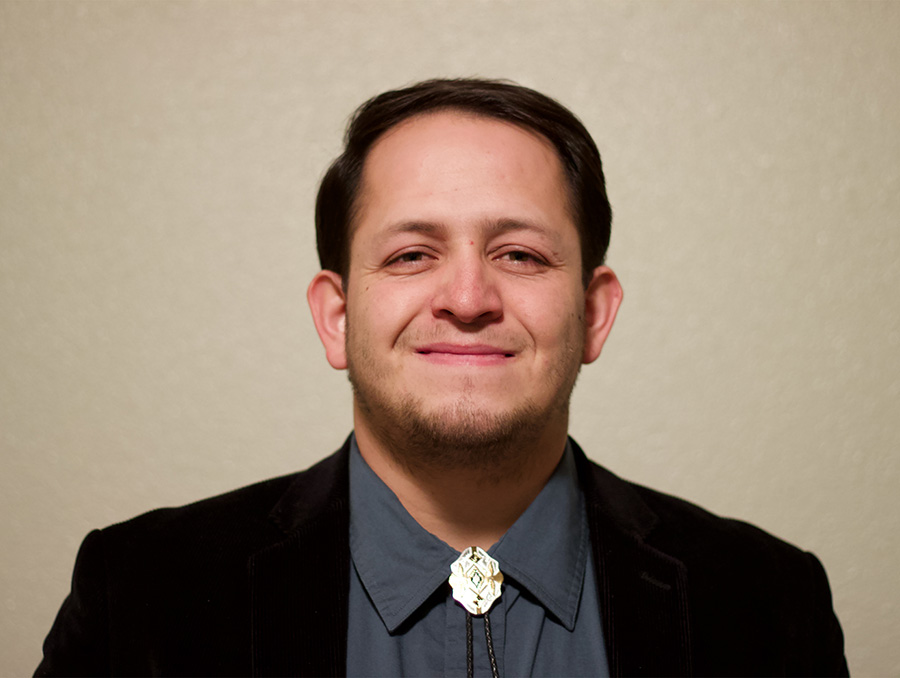
Arturo Macías Franco
- Generation Google Scholarship
- Dick Kleberg Beef Breeding Scholarship
- Paul and Daisy Soros Fellowship for New Americans
"Anything I’ve accomplished is a representation of the support I’ve obtained from my time here. I’ve been extremely lucky to get to work with the people I’ve worked with, and I’m thankful for everyone who’s helped me."
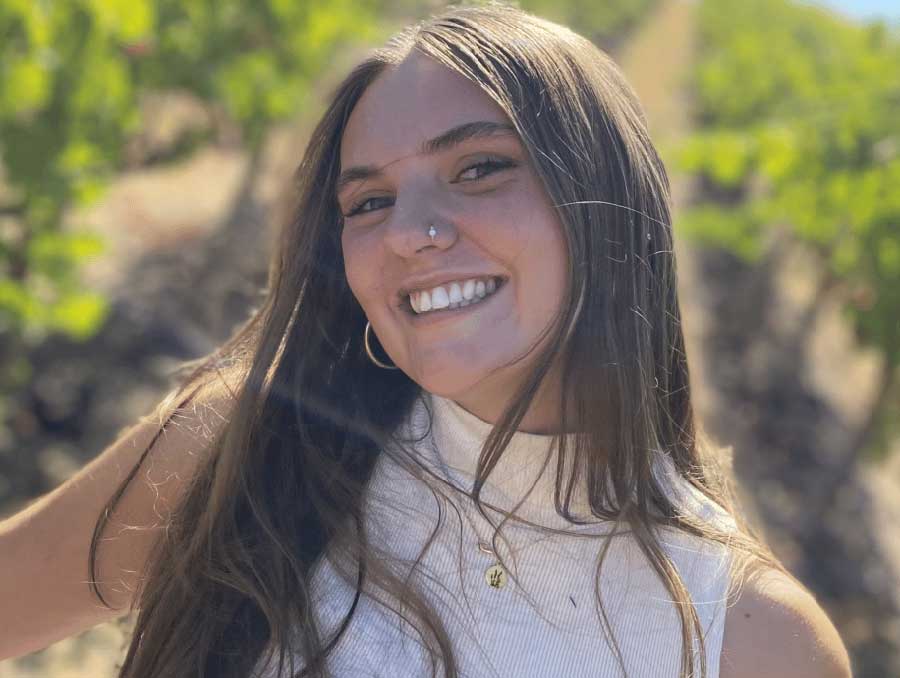
Casey White
- Robert E. Dickenson Scholarship
- Stu Shea U.S. Geospatial Intelligence Foundation Endowed Scholarship
"I am immensely grateful to have been selected as a recipient of the Stu Shea Scholarship award, as it provides me with financial support to pursue my studies while empowering me to continue critical research in climate science."
Elijah Boardman, Elena Cox, Jordan Zabrecky and Otis Clyne | National Science Foundation Fellowships
Did you receive a scholarship?
Innovating for Nevada
Our programs work together to make an impact
Our teaching, research and engagement programs are intertwined and complement one another. Faculty who teach on campus also conduct research as part of our Experiment Station, allowing students to learn about and participate in research. Extension faculty engaging with communities identify research needs, as well as join Experiment Station faculty to conduct research. Faculty on campus help to develop Extension programs in communities.
